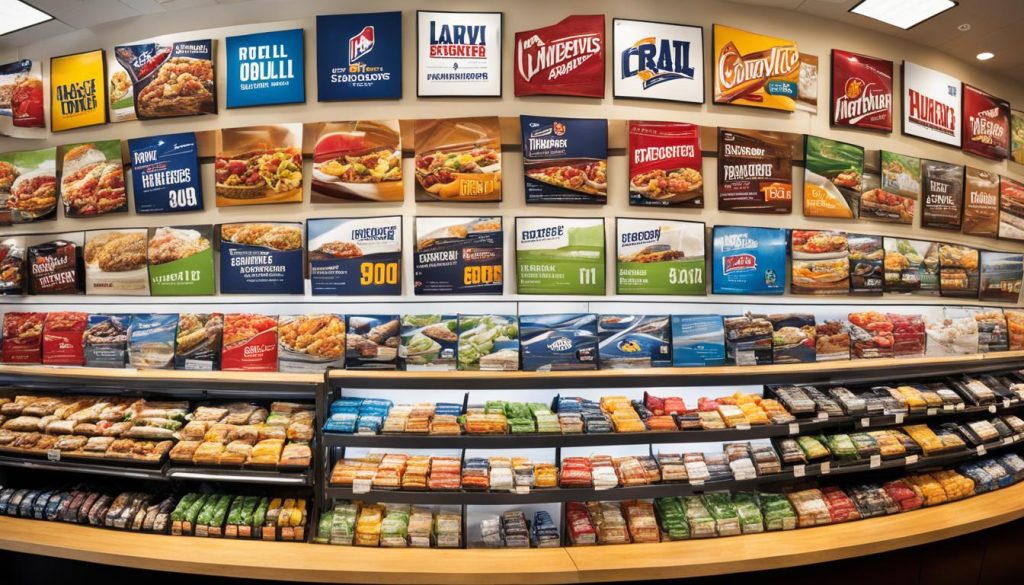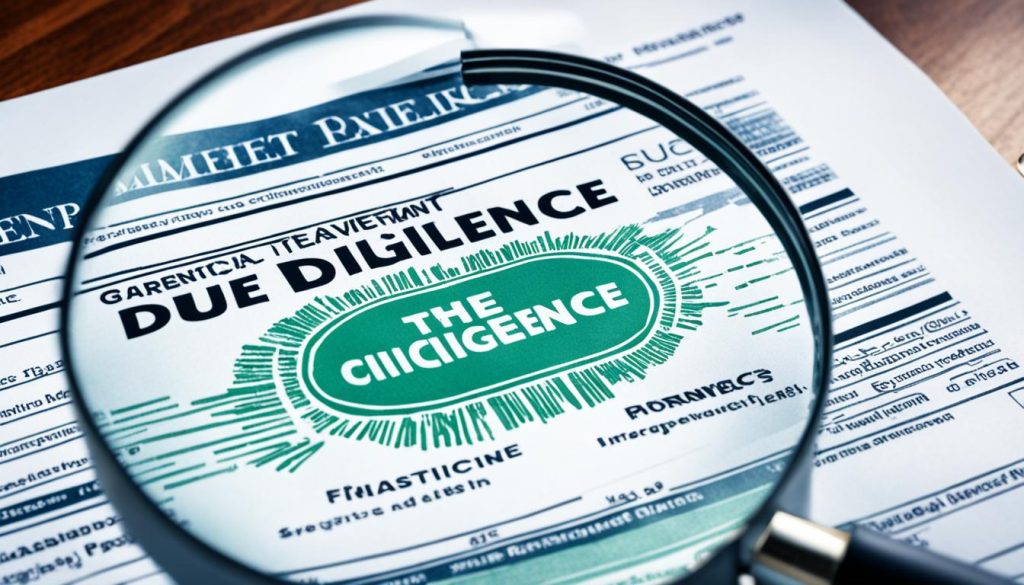Are you thinking about starting a franchise? It’s a big decision, but it can offer a lot. You get a proven business model, a well-known brand, and help with running the business. But, there are things to think about too. This guide will help you decide if a franchise is right for you.
More and more people are choosing franchises to start their own businesses. They like the structured approach, the systems already in place, and the access to resources. For instance, Five Star Bath Solutions is a top affordable franchise choice, ranking 51st1.
Key Takeaways
- Franchising can offer a proven business model, brand recognition, and operational support
- Franchise fees, royalties, and term lengths are important factors to evaluate
- Conducting thorough due diligence on the franchisor and franchise opportunity is crucial
- Financing options, including loans and investments, are available for franchise ownership
- Assessing the franchise’s brand reputation, competition, and market potential is essential
- Franchise support systems
Understanding the Franchise Business Model
Looking into a franchise can be a great choice for those wanting a tested business model and a well-known brand. But, it’s key to know the details of the franchise structure before jumping in. This includes the costs, royalties, how long the agreement lasts, and what kind of lifestyle it brings2.
Franchise Fees and Royalties
Franchisees pay an initial fee, which can be between $10,000 to $100,000. This fee gives them the right to use the brand, systems, and support from the franchisor2. They also have to pay ongoing royalties, usually a part of their sales, to keep getting support and brand access2. For instance, Cheba Hut franchisees give 5% monthly and an extra 2% to the brand fund3.
Term Length and Lifestyle Considerations
Franchise agreements usually last 10 years or less, affecting long-term plans and lifestyle2. This short term means franchisees might need to renew or renegotiate their deal, which can be uncertain and costly2. Also, the franchise lifestyle demands a lot of time and effort. Franchisees must follow the franchisor’s rules to keep the brand’s good name2.
It’s vital for those thinking about franchising to understand the financial and lifestyle aspects. This helps them decide if it matches their business and personal goals2.
| Franchise Concept | Initial Investment | Royalty Fee | Other Fees |
|---|---|---|---|
| Cheba Hut | $591,400 – $1,294,800 | 5% | 2% into brand fund |
| Jazzercise | Starting from $2,500 | 20% | – |
| Super Glass Windshield Repair | Starting from $18,685 | – | Franchise fee from $5,000 |
| Dream Vacations | $9,800 | 1.5%-3% annual commissions | – |
| TSS Photography | $10,500 | Determined by print production costs | – |
Is It Worth Investing in a Franchise? gv
Many people choose to start a franchise when they think about entrepreneurship. It seems appealing because of the brand name, systems, and support you get. But, you should think about the pros and cons before deciding if it’s right for you.
One big plus of a franchise is the brand’s reputation. Being part of a known brand can make your business more visible and credible right away. You also get training, support, and a network of other franchisees to help you start and run your business5.
But, franchises can be more expensive and less flexible than starting your own business. You’ll pay fees and royalties, which can cut into your profits. You also have to follow strict rules set by the franchisor, which might limit your freedom to make changes or adapt to local markets.
The success of franchises can vary. Some do very well, while others don’t make it. In the USA, there were over 773,603 franchise establishments in 20205. But, success depends on many things like the industry, location, and the franchise itself.
Thinking about the franchise risk is important too. Look at the brand’s reputation, the franchisor’s finances, and legal issues. For instance, Jazzercise has 8,930 units, while Super Glass Windshield Repair costs from $18,685 to start, with a $5,000 fee5. These numbers can help you see the risks and benefits of each franchise.
Deciding to invest in a franchise5 should be based on your goals and understanding the franchise. Look at the pros and cons, success rates, and risks to make a choice that fits your business vision.
“Joining a franchise can provide the support and systems needed to launch a successful business, but it’s crucial to understand the financial and operational commitments involved. Careful due diligence is essential to determine if a franchise is the right fit for your entrepreneurial goals.”
Evaluating Franchise Opportunities
Assessing Brand Reputation and Competition
Looking into a franchise means checking the brand’s reputation and the competition in your area6. There are many types of franchises, and knowing the brand’s good and bad points is key. Also, seeing how it stands against other businesses is important for making a smart choice.
First, dig into the franchisor’s background, growth, and success. Check out what people think of the brand, how happy customers are, and any legal problems they’ve had. Talk to current franchisees to learn about the brand’s daily life, support, and profits7. This can show you the brand’s true value and warn you of any issues.
Then, look at the competition in your area. See who else is out there, their prices, and what makes them special. Think about how much people want the products or services, and any trends that could change things8. Knowing this can tell you if the franchise could work well and how you can stand out.
- Research the franchisor’s history, growth, and performance to assess the brand’s reputation.
- Speak with existing franchisees to gain firsthand insights into the brand’s operations and profitability.
- Analyze the competition in your target market, including market share, pricing, and unique offerings.
- Assess the demand for the products or services and any local or regional trends that may impact the franchise’s performance.
By carefully looking at the franchise’s brand and the competition, you can decide if it fits your goals. This research will show you what’s good and bad about the franchise. It helps you make a smart choice for your investment.
Conducting Thorough Due Diligence
Looking into a franchise? It’s key to do your homework. This means checking out the Franchise Disclosure Document (FDD) closely. It has lots of info on the franchisor, how they run things, and what you’ll need to do9.
The FDD is a must-have document. It tells you about the franchise’s past, money matters, who runs it, and what you agree to. Reading it well helps you see what’s good and bad about the franchise. It’s vital for deciding if it fits your goals and budget.
Reviewing the Franchise Disclosure Document
The FDD has a lot of key info. You’ll find out about the franchisor, the franchise setup, money stuff, and the agreement you’ll sign. Make sure to look at each part carefully. Get help from a good franchise lawyer to make sure you get the legal stuff9.
- Learn about the franchisor’s background, money health, and success history.
- Check the franchise’s business model, how it works, and the support it offers to see if it’s what you want.
- Look at the franchise agreement closely, especially at parts about ending the contract, renewing it, and rules for your business.
- Talk to a franchise lawyer to understand the legal side and protect your interests.
Doing a deep dive into the FDD and getting expert advice helps you make a smart choice. It also lowers the risks of your investment9.
Remember, checking out the franchise before you jump in is crucial. Spend time on the FDD, get the legal stuff, and talk to pros. This way, you make a choice that matches your future plans9.
Financing Options for Franchise Ownership
Investing in a franchise requires careful thought about money matters. Prospective franchisees can find many ways to fund their dreams10. Options include equipment financing, business term loans, SBA loans, and using retirement funds. Each option has its own way to help you start your franchise.
The Small Business Administration (SBA) loan is a top choice for many10. These loans come with good terms and can help with lower down payments. But, getting one requires a good credit score, which is key10.
There are also other ways to fund your franchise, like equipment leasing, vendor financing, or using a 401(k) rollover10. These can be good for those who can’t get traditional bank loans.
Franchisors often help by working with financing partners to get the money needed10. These partnerships offer guidance and support, making the financing process easier.
It’s important to look at the costs and requirements of the franchise you want10. Some franchises, like those in senior care or home services, might be cheaper to start than retail stores. They need less money for things like location and setup costs.
Finding the right financing plan depends on your money situation, the franchise’s needs, and your goals10. By looking at all the options and doing your homework, you can make a smart choice for your future.
“Investing in a franchise can be a rewarding and life-changing experience, but it’s essential to understand the financial landscape and choose the right financing option to support your journey.” – John Doe, Franchise Financing Expert
Conclusion
Choosing to invest in a franchise is a big step that needs careful thought. You must look at the franchise’s business model, its reputation, the competition, and your financial situation and dreams11. The franchise world uses the idea that it’s cheaper and faster to grow through franchising. This is because the franchisee brings money and resources to the franchisor11.
For a franchise to do well, you must check the opportunity well, get the right financing, and match the franchise with your long-term goals12. Using the help from franchisors, like free tech support, online sales teams, and marketing, can boost your chance of making money as a franchise owner12.
Investing in a franchise like Crumbl can bring in a lot of money, with average earnings of $1.8 million and a net profit of $256,029 in 202213. But, you should think about the big upfront costs and ongoing fees13. Your decision to invest in a franchise should be well-thought-out. It should be based on understanding the franchise’s business model, your goals, and the risks and rewards of the opportunity111213.
FAQ
What is the typical franchise fee and royalty structure?
How long are typical franchise agreements?
What are the potential pros and cons of investing in a franchise?
How can I effectively evaluate potential franchise opportunities?
What is the importance of conducting due diligence when considering a franchise investment?
What are the financing options available for prospective franchisees?
Source Links
- What You Need to Know About Owning a Franchise
- How Coca-Cola Makes Money
- Cheba Hut Toasted Subs Review: ‘High’ On The List Of Sandwich ‘Joints’
- Best Franchises to Buy in America | Franchises to Own
- Best Franchises to Buy in America | Franchises to Own
- MJSS_September_2014_Vol.5_No.22_Content.pdf
- Key Takeaways From the 2023 Franchise Leadership and Development Conference
- Through the Looking Glass: Lo Toney — Laconia
- Legal Guide for Startup Founders in the USA 2023 | Buzko Krasnov
- Financing a Franchise (with Gregory Mohr) | Podcast | Boomplay
- Chapter 2- Analysis Rise of Franchises
- A Success Story In Franchising – FasterCapital
- Crumbl Franchise Cost & Profits (2024) – Vetted Biz



